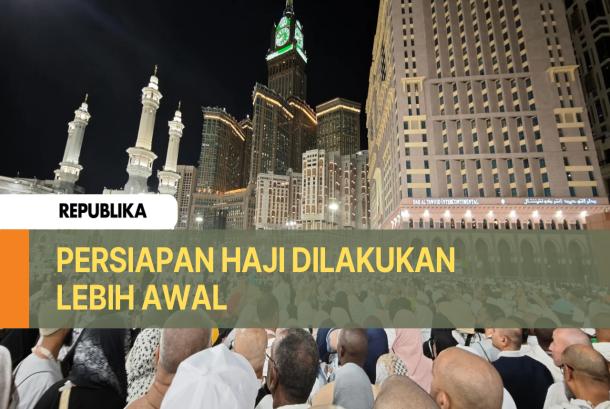REPUBLIKA.CO.ID, By: Asma Nadia
That afternoon I was in a hurry to go to a bank for the purpose. After passing through the traffic jams and various obstacles, I finally arrived with panting breath. Unfortunately, it turned out the bank attended was closed.
"During Ramadan, banks close at 14:30!" it explained by security guard who was on the yard. Half or an hour earlier than usual, my mind recorded.
The next day I came again, still to fulfill the same purpose. Arriving at the bank, the room was filled with customers. Inevitably, I had to spend time lining up longer than usual. "Understandably, Ma'am, because the bank closed faster, so the service time is limited," said another consumer on the same boat.
Perhaps it should be like this in the month of Ramadan, I thought resignedly. From year to year, yet no one protested. But, the conversation then after I was home, made me take a different conclusion.
When I was resting at home, I called Mas Eka Tanjung, friends in the Netherlands, an Indonesian citizen who had long resided in the Windmills State with family.
"Well, we are just breaking the fast?" he opened the conversation. "Oh, sorry to interrupt you. Congratulations for breaking the fast, Mas. What time to breaking the fast in there?"
"Yeah, we have breaking the fast at 22:07, Mbak." explained Mas Eka again. "Wow, it must be heavy. That means about 17 hours of fasting, huh?"
On that time was flashed in my mind was suhoor at 05.00 am, and then breaking the fast at around 10 pm.
"No, Mbak, the dawn here at 3:03 am. So, fasting in the Netherlands are about 19 hours. Therefore, children at school are quite heavy the struggle."
Masha Allah, 19 hours of fasting! Subuh came faster, Maghrib came slower. There was no privileges, no special treatment. Indonesian Muslim children in the Netherlands only had a lag time of five hours after breaking the fast before getting fasting again.
A short conversation with Mas Eka made me interested to see the data fasting longest in the world. Apparently, during this summer, Scandinavian countries such as Sweden, Finland, and Norway are undergoing fasting for 21 hours and only have a lag time of three hours for eating. Muslims in Russia were fasting about 19 hours, in England the range of fasting is 17 hours and 45 minutes.
In the United States, 16 hours of fasting period, while in Japan a time of fasting is 15 hours 37 minutes. And in all these countries, Muslims are generally running the fasting with no exceptions at all.
They who were still on learning, have to go school every day, there was no task which was alleviated. Those who worked were still undergoing the routine every day without any specificity. The point is, their productivity remains the same despite the sacrifices and challenges there was much more severe.
Meanwhile, in Indonesia which time about 13 hours of fasting, Muslims were given many privileges with much ease. Home from work faster, there were work hours which was more daylight than usual -if belated was still tolerable- even if sleeping in working hours was mostly still considered normal.
If the convenience and the vacant time in order to have a longer period of worship, it may be understandable. But, many of which was translating the vacant time as a period to more resting. If we stop by at the great mosques or prayer room during the day, there were still widely seen the people was laying nap in during the lunch break.
The contrast that occurred, it was forcing me to think back thoughtfully about fasting and productivity. Is it true if there is a presumption that the fasting is hampers the productivity?
If you look at history, the month of Ramadan became achievement of Muslims. Badr Kubra war occurred in 17 Ramadhan years 2 hijri. Fathu Makkah occurred on 21 Ramadan on the 8th year of hijri.
The spread of Islam was first in the country occurred in Yemen on the Ramadan the 10th year of hijri. Islam under the leadership of Thariq ibn Ziyad entered to Spain first time on 28th Ramadan in years 92 of hijri.
In the history of Indonesia, inevitably Ramadan was also listed as an achievement months. Fatahillah seized Sunda Kelapa on June 22, 1527 M or coincide with the 22nd Ramadan 933 H. Proclamation of Indonesia’s independence also occurred during the holy month. Yes, August 17, 1945 to coincide with the 9th Ramadan.
Now, the question that we need to voice out in the heart of each, could in the left days of Ramadan make us productive? In fact, it is better-probably more productive than the other 11 months? There are still a number of days of Ramadan that we can correct together, until afterwards feels right, inshAllah, physically and mentally we are the winners.







